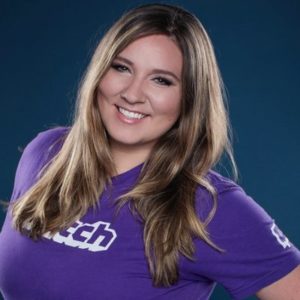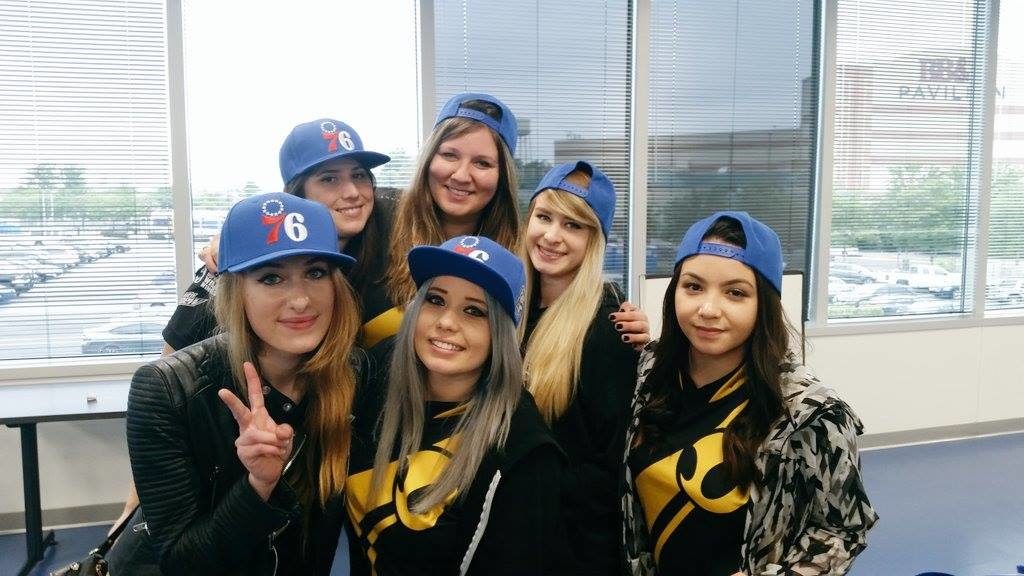What a difference a decade makes. Heather Garozzo is the Director of Fan Engagement at Team Dignitas.

Ahead of XLIVE Esports Summit where she’ll be speaking at the New York event on a panel focused on women in esports, here she tells us about her own experiences in the industry.
Her journey from pro player to working in a professional capacity with Team Dignitas is a journey worth documenting, especially since her career began way back when during esports’ relative early days, and continues today when it’s on the up and up.
Esports Insider: You’ve been in esports for some time now, what has surprised you the most about the growth and changes in the past few years?
Heather Garozzo: Over a decade ago, I was ashamed to tell friends, family and co-workers what I did on the weekends. I was a varsity athletes, I worked in professional sports (Milwaukee Brewers) but my secret passion was competitive video games.
“We’ve built something truly from the ground up to become the fastest growing sport in the world”
Fast forward to the modern day and that shame has turned to pride. For me, that’s one of the biggest changes – a surprising change. Telling many people that I played and now work in professional video games is cool. It’s met with interest and curiosity. The same seems true for many of my peers in the industry. This is something to be proud of. We’ve built something truly from the ground up to become the fastest growing sport in the world.
ESI: From your personal experience, what are your thoughts on the perception and treatment of women playing in the CS:GO scene.. Has this changed much in the past couple of years? Does it need to?
Heather: There are certainly more women in the industry than years ago – not just players, but fans and women working in the industry.
I used to be the only woman in the room in a sea of hundreds. So no one really bats an eye anymore if you see a woman cheering for her favorite team or grinding out 50 hours of a week of practice. However, being disrespected online, in streams, on social media pages and in-game hasn’t gone away – and likely never will. It’s the unfortunate nature of the internet. Even the world’s best athletes are met with online harassment.
I’ve learned to block that out and instead try to surround myself with supportive friends and mentors.
ESI: What will you be discussing at your panel at the XLIVE Esports Summit in August (22-23)?
Heather: I’ll be speaking on a women in esports panel. Despite mentioning prior that the
percentage of women in esports is drastically higher than years ago, we’re still a small minority.
The non-endemic space still has questions about our path to where we are today and what we’d like to see in the future to make esports a more welcoming space for women. We’ll present thoughts on where we came from, what struggles we endured along the way and what we’d like to see for the future of women in esports. However, we hope the panel will be more of a Q&A where we’ll use our expertise to help answer questions from our audience given we’re all very different positions across the industry.
ESI: You’re currently managing the all-female Dignitas CS:GO team, how did you start playing and what was it like coming up and going pro? Does more need to be done to encourage girls and women at a grassroots level, and if so what?
Heather: I’ve played since 1999. At first, it was only something to pass the time on weekends when I didn’t have softball practice, for example. My brother would have friends over for LAN parties in my parent’s basement. Eventually, I started to gain an active interest. Since I’m incredibly competitive, I immediately became infatuated with improving my game. I later started traveling to tournaments, winning a few hundred dollars each weekend. My travels took me from regional tournaments to nation-wide tournaments and finally international events.
“More should be done at the grassroots level. I’ve met so many women that ask me how to get started”
Yes, more should be done at the grassroots level. I’ve met so many women that ask me how to get started. They don’t know where to find other women to play with – not that women should only play with women – but often times they find it more of a comfortable starting point.
I’d love to see more local meet-ups where female gamers can get together and just have fun on LAN. The University of California-Irvine, one of the most progressive universities in regards to esports, recently has a Women’s Esports bootcamp. Several of our Team Dignitas’ professional female gamers went there to help mentor those aspiring gamers. I hope to see more events similar to this.
ESI: What are your thoughts on female only teams and leagues? Is this a good way to go about ‘levelling up the playing field’?
Heather: I don’t see anything wrong with female-only teams. I’ve played in both over the years.
Some years, my best friends in the game happen to be male so that’s who I play with. Other times, they are female. To me, gender composition of a team is irrelevant. Play with the four other people you get the most enjoyment out of playing with. It’s hard to become a player if you don’t have great chemistry with your teammates.
“The University of California-Irvine, one of the most progressive universities in regards to esports, recently has a Women’s Esports bootcamp. I hope to see more events similar to this”
As for female leagues, I don’t think they are the best idea. I prefer female-only tournaments, and in moderation. The current amount, something around three to four per year, is plenty. It’s enough to give women an achievable stepping stone to becoming a better player. It’s enough that it inspires other women to want to compete and gives them something relatable to look up to. That being said, I’d never want to see the day where every tournament has a side women’s only event.
“Eventually, just as a fraction of a percentage of male players emerged as stars, someday that should be the case for a fraction of a percentage of the female players too”
I don’t believe there is anything physical holding women back from being top tier. Similar to males, the percent of males (a fraction of a percent) that are professionals are there because of the effort they put into becoming better. Women can, and some are attempting to do, just that. To be the best, you have to practice like and compete against the best. There are a handful of women I think that one day could play on a very top team. However, for now, I think there is simply just a need to get more women interesting in esports and competing, rather than just playing casually.
Eventually, just as a fraction of a percentage of male players emerged as stars, someday that should be the case for a fraction of a percentage of the female players too.
ESI: What does your position of Director of Fan Engagement at Team Dignitas entail?
Heather: As the Director of Fan Engagement, I’m tasked with increasing our volume fans and giving them a reason to keep returning.
“Historically in esports, people are fans of players, not necessarily organisations. If their favorite player moves to a new team, so does that fan’s allegiance”
Historically in esports, people are fans of players, not necessarily organisations. If their favorite player moves to a new team, so does that fan’s allegiance. That’s not necessarily the case in professional sports (though obviously there are exceptions).
Through streaming, social media, website content and public relationships, I’m working closely with our players and staff to increase theirs and our followings. Team Dignitas is a legacy brand in esports – one of the oldest still around, dating back to 2003. That’s something to be proud of.
We’ve had over one hundred world champions play for Team Dignitas. We also have some very exciting new stars. It’s my job to help share our incredible players, their interesting stories and their game knowledge with our growing audience of fans.

ESI: Can you share some thoughts on the impact of the Philadelphia 76ers ownership of Team Dignitas?
Heather: The Philadelphia 76ers have brought a wealth of experience to our team, in multiple aspects.
As it relates to our players, the Philadelphia 76ers performance team, lead by Dr. David Martin, have given us unparalleled resources at our finger tips. From sessions with a sports psychologist, to gaining insight from the Sixers’ nutritionist and chef, discussing communication with Coach Billy Lange, and learning exercises to cope with or prevent injuries, the Sixers have given Team Dignitas a regimented training program that will improve our future access. They’ve also built a bootcamp area, overlooking the NBA practice court, where our teams can practice from during their routine visits for the training program.
“As it relates to our players, the Philadelphia 76ers performance team, lead by Dr. David Martin, have given us unparalleled resources at our finger tips”
On the business end, our internal marketing team is communicating with the Sixers daily, all the way up to their CEO. The Philadelphia 76ers, along with the NJ Devils & the Prudential Center have a invested but also very genuine interest in our success. We’re both learning about each other’s industries and trying to pave the way for the future of both esports and sports.
Disclaimer: Esports Insider is an official media partner of the XLIVE Esports Summit. You can read more about the event here.

